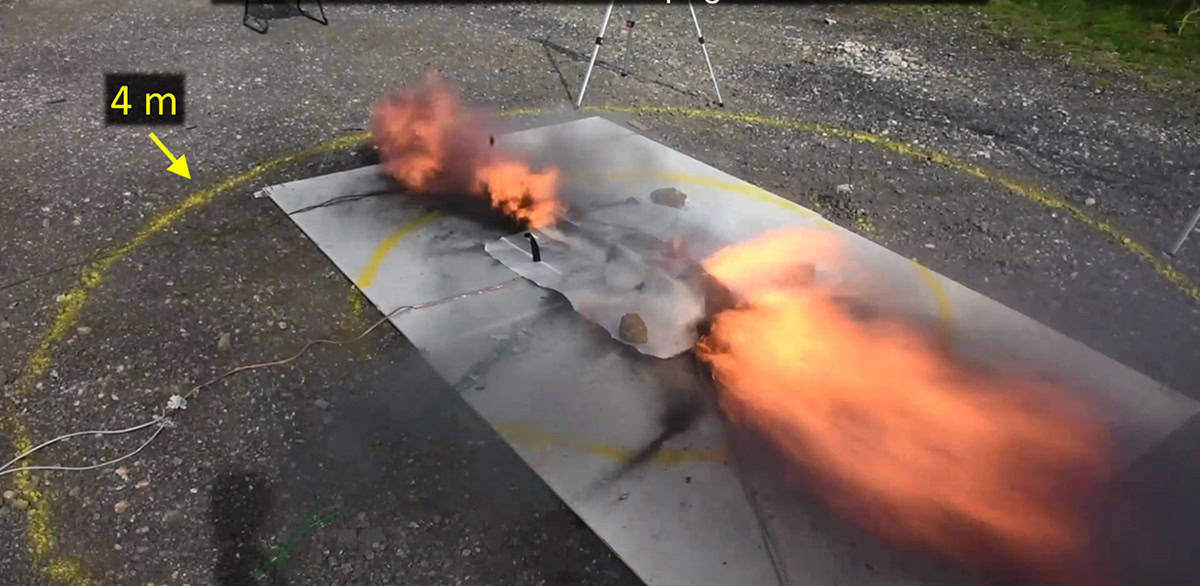Join the audience for a live webinar at 3 p.m. BST/10 a.m. EDT on 17 July 2024 to explore common causes and prevention methods of battery thermal runaway
Want to take part in this webinar?

Abuse testing and failure recreation of thermal runaway in lithium-ion battery packs within Exponent’s London laboratory has shown how battery fires can initiate and propagate. This webinar discusses how even small amounts of moisture ingress into a battery pack can lead to thermal runaway of the cells within the pack. Specific conditions and behaviours of saltwater ingress-driven circuit board faults were investigated, and localized temperature increases of greater than 400 °C even at relatively low voltages and fault currents were demonstrated, showing the potential for saltwater induced circuit board faults to lead to cell thermal runaway events. The extent and severity of e-mobility battery fires resulting from a single cell thermal runaway failure was explored. Various suppression techniques a user may attempt to implement if they experience a battery fire in a household environment were evaluated. Tests were run of water flows typical of a household garden hose as well as different fire blankets deployed both before the forced thermal runaway event, and after initiation. In addition, various design approaches, such as added thermal insulation between cells, were shown to help prevent cell-to-cell propagation and reduce the severity of a battery pack failure.
An interactive Q&A session follows the presentation.
Want to take part in this webinar?

Daniel Torelli specializes in lithium-ion battery failure analysis and manufacturing quality control. As a certified fire and explosion investigator (CFEI), Daniel has been involved in a number of fire investigations related to lithium-ion batteries, consumer electronics, power and energy, and electricity transmission and distribution. During his time at Exponent, he has worked with lithium-ion batteries for a variety of applications including consumer electronics, electric vehicles, residential and grid-scale, energy-storage systems, and micromobility. His work focuses on root cause analysis of battery failures such as thermal runaway, performance-related issues, and pack-design issues. Daniel completed his PhD in 2018 at the California Institute of Technology where he received national science foundation graduate research fellowships from 2014–2016. He also received a 2013 American chemical society undergraduate award in inorganic chemistry and was inducted into the Gamma Sigma Epsilon Chemistry Honors Society in 2012.
- SEO Powered Content & PR Distribution. Get Amplified Today.
- PlatoData.Network Vertical Generative Ai. Empower Yourself. Access Here.
- PlatoAiStream. Web3 Intelligence. Knowledge Amplified. Access Here.
- PlatoESG. Carbon, CleanTech, Energy, Environment, Solar, Waste Management. Access Here.
- PlatoHealth. Biotech and Clinical Trials Intelligence. Access Here.
- Source: https://physicsworld.com/a/an-investigation-into-battery-thermal-runaway-initiation-and-propagation/






